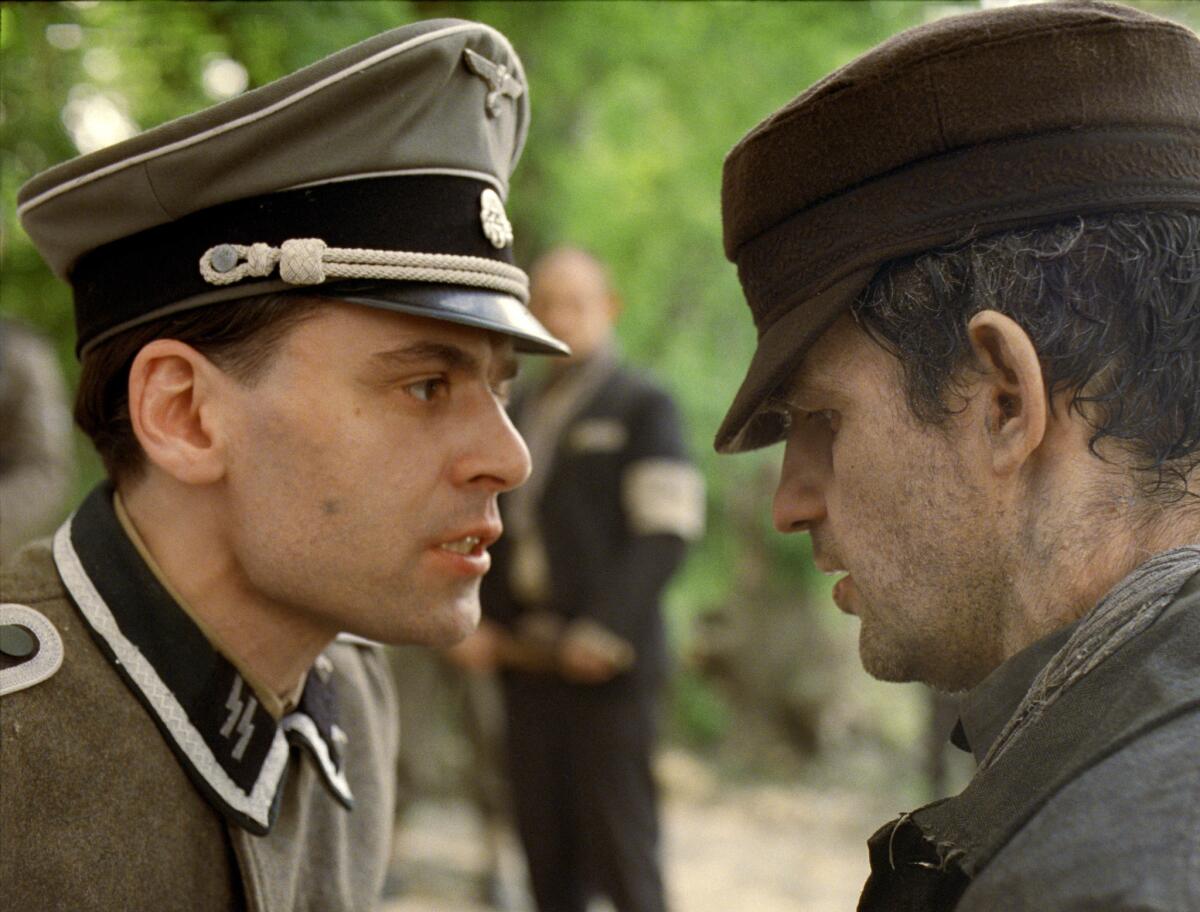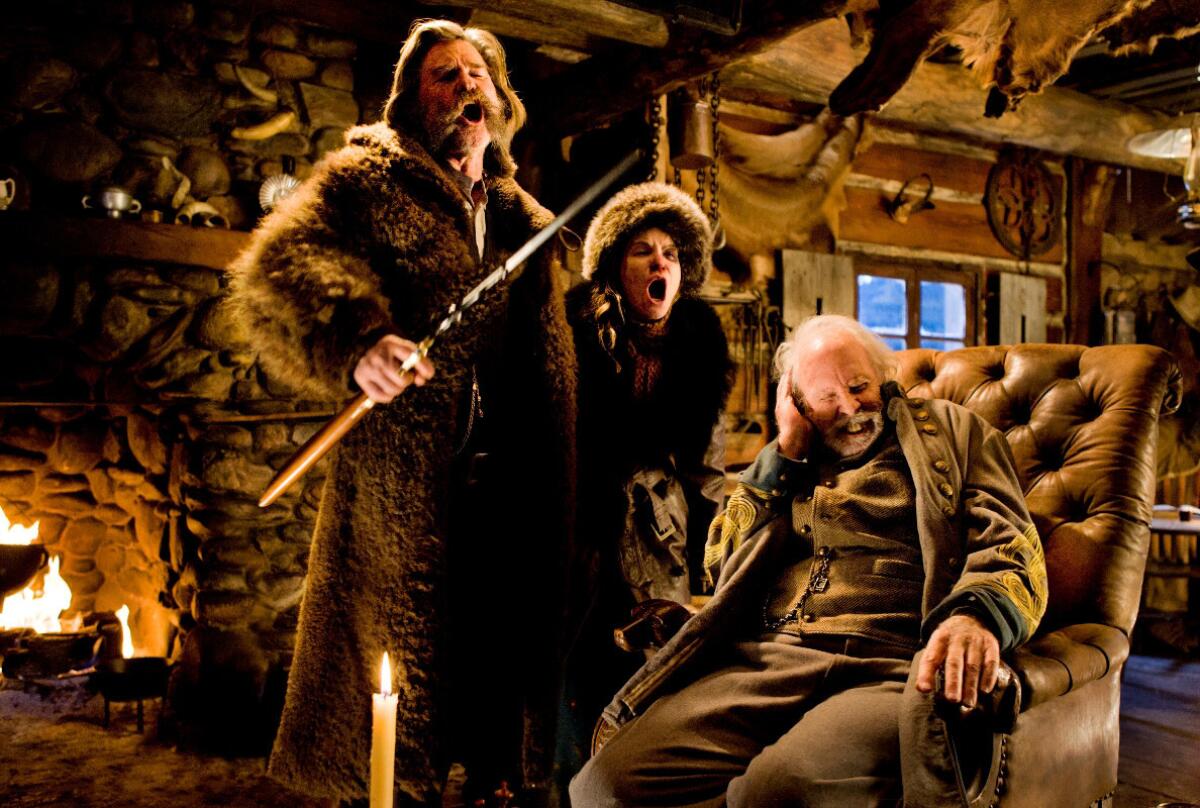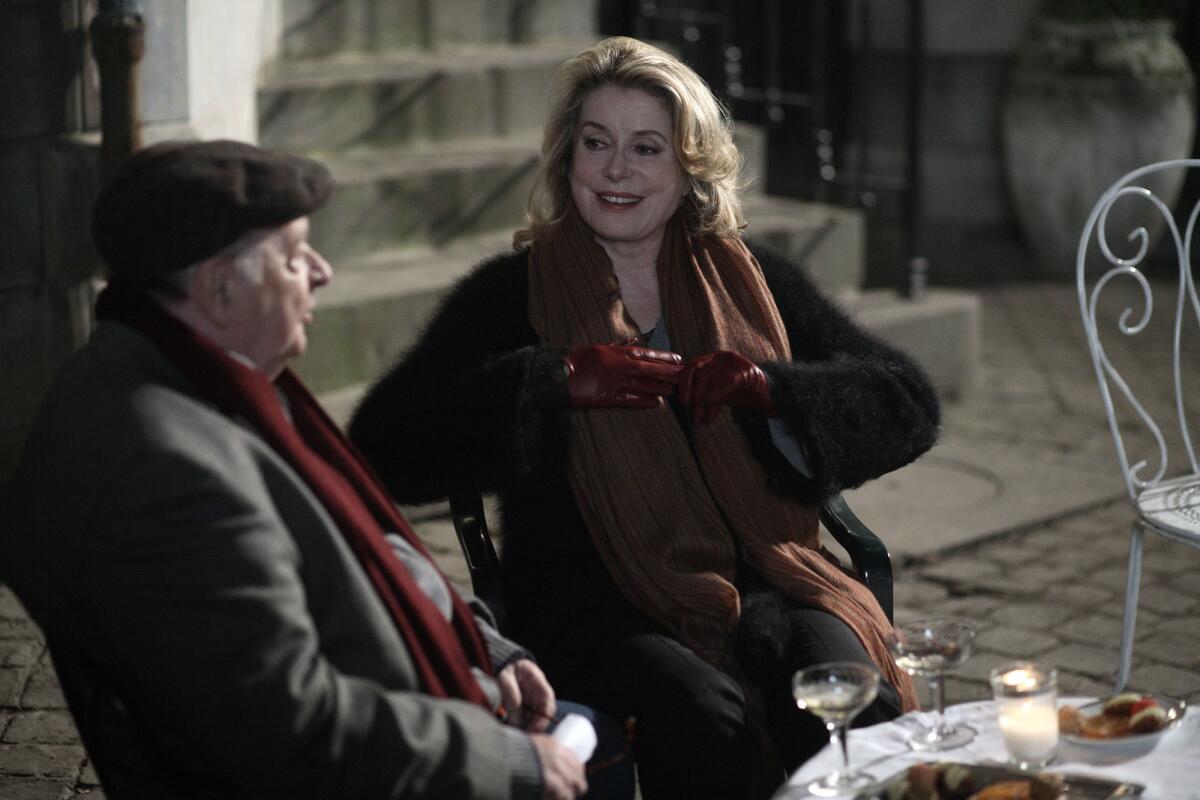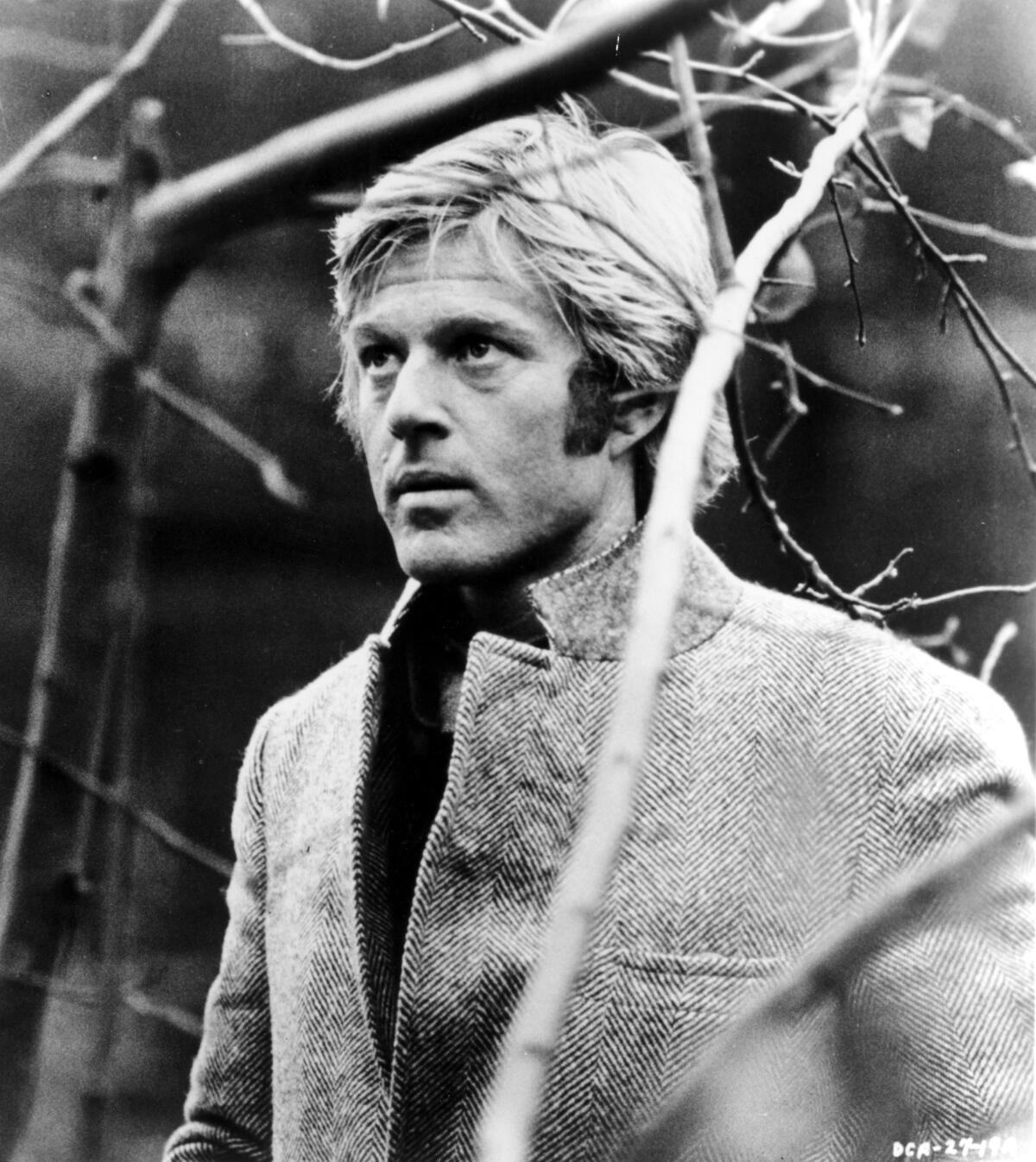Indie Focus: Hitting history head-on with ‘Son of Saul’ and ‘The Hateful Eight’

Indie Focus logo for the newsletter
Hello! I’m Mark Olsen, and welcome to your weekly field guide to a world of Only Good Movies.
This past week we wrapped up the year in Los Angeles Times screening events with two very different films. One was the small indie dramedy “Grandma,” followed by a Q&A with Lily Tomlin, writer-director Paul Weitz and producer Andrew Miano. The other was the frontier epic “The Revenant,” followed by a Q&A with director/co-writer Alejandro G. Iñárritu and actors Leonardo DiCaprio, Domhnall Gleeson, Will Poulter and Forrest Goodluck. We’ll have videos from both posted soon. Check back to events.latimes.com for more in the new year.
My colleague Rebecca Keegan and I recently hosted a series of conversations among actors, actresses and directors that will air on the Ovation TV channel starting in mid-January. For now you can see clips and read condensed versions of the Q&As for the lead actress and supporting actress panels and we’ll have more posted soon.
We’ll be taking off next week, so this will be the last newsletter of 2015. We here at Team Indie Focus are looking forward to doing it up in 2016. Nonstop movies. Movies nonstop.
'Son of Saul'

Christian Harting, left, and Geza Rohrig in a scene from “Son of Saul.”
Christian Harting, left, and Geza Rohrig in a scene from "Son of Saul." (Sony Pictures Classics)
The first feature from Hungarian filmmaker László Nemes, "Son of Saul" has been one of the most talked-about debuts of the year. Picking up numerous critics prizes, this film was recently nominated for a Golden Globe for best foreign language film and this past week made the cut for the shortlist of nine films that will compete for the foreign language Oscar.
In his review, Kenneth Turan called the film “an immersive experience of the most disturbing kind, an unwavering vision of a particular kind of hell. No matter how many Holocaust films you've seen, you've not seen one like this.”
When the film first premiered at the Cannes Film Festival earlier this year, Steve Zeitchik was there to interview Nemes, who said, “What I want is to show what happened, not through history but by being there. That was what we tried to do — to allow viewers to use their imagination so we can reach their soul.”
Which is not to say the film has exclusively been praised. Out of Cannes, critic Manohla Dargis acknowledged the film’s “technical virtuosity” while also calling it “radically dehistoricized, intellectually repellent.”
Critic J. Hoberman wrote powerfully about the ambivalent feelings the film engenders in viewers, while noting "Fascinating from beginning to end, 'Son of Saul' is a movie that, among other things, tries to evoke the sensation of being terrorized every moment of every day.”
'The Hateful Eight'

Kurt Russell, left, as John Ruthin in a scene from “The Hateful Eight.”
Kurt Russell, left, as John Ruthin in a scene from "The Hateful Eight." (Andrew Cooper / The Weinstein Company)
Opening in limited release on Christmas Day in an ambitious roadshow presentation that is the largest 70-millimeter release of a film in quite some time, “The Hateful Eight” is the latest film from Quentin Tarantino. Set just after the Civil War, the film finds a group of bounty hunters and travelers snowed in together in a remote cabin. In his review for Variety, critic Peter Debruge called the film: “a salty hothouse whodunit that owes as much to Agatha Christie as it does to Anthony Mann.”
Times writer Jeffrey Fleishman sat down with Tarantino and Samuel L. Jackson for a conversation that veered toward the movie’s intersection with recent conversations regarding race and violence.
"If I have one serious subject that has carried over with me," said Tarantino, "it is dealing with race in America and in particularly between white folks and black folks .... It is who I am and what I'm interested in."
In an interview for the Envelope with Gina Piccalo, actor Walton Goggins also spoke to the film’s unexpected timeliness when he said, “At times it felt like, is life imitating art? Or are we imitating life? It was as if these two rivers were destined to meet.”
In a recent Sneaks issue, Tarantino provided a character guide for anyone trying to get a jump on who is who in the movie.
‘A Christmas Tale’

Jean–Paul Roussillon, left, as Abel and Catherine Deneuve as Junon in “A Christmas Tale.”
Jean–Paul Roussillon, left, as Abel and Catherine Deneuve as Junon in "A Christmas Tale." (Jean-Claude Lother / IFC Films)
French filmmaker Arnaud Desplechin is another example of someone who is highly regarded on the international festival circuit but has never quite broken through with wider audiences in the U.S. His most recent film, “My Golden Days,” played at the AFI Fest and will soon also be showing as part of the Palm Springs International Film Festival before opening in March 2016.
Among his best known films is his 2008 film “A Christmas Tale,” a sprawling, multigenerational comedy-drama starring Catherine Deneuve, Mathieu Amalric, Melvil Poupaud, Emmanuelle Devos and others. It will be showing on Dec. 23 in 35mm as part of the La Collectionneuse series.
Writing about the film in 2009, Dennis Lim pointed out the film’s seeming similarity to American-style multigenerational family films, “But while its American counterparts run on clockwork, stirring up resentment before wrapping everyone together in a therapeutic group hug, ‘A Christmas Tale’ has no interest in resolving conflicts or rationalizing the contradictory impulses of its volatile characters.
"In fact, the messier the emotions, the more vibrant the filmmaking. Desplechin's movies are unpredictable from moment to moment, filled with detours and tangents, just as his characters are prone to mood swings.”
There’s a great Q&A online from when the film played as part of the 2008 New York Film Festival, with Desplechin in conversation with Kent Jones.
'Three Days of the Condor'

Robert Redford in a scene from “Three Days of the Condor.”
Robert Redford in a scene from "Three Days of the Condor." (Handout)
L.A’s New Beverly Cinema — which is of course owned by one Quentin Tarantino — is showing a pretty terrific series of movies set at Christmastime that aren’t exactly Christmas movies, including the down-and-dirty 1971 crime thriller “The Silent Partner” starring Elliott Gould and Christopher Plummer. But the one that has me really excited is the late Sydney Pollack’s 1975 film “Three Days of the Condor” starring Robert Redford and Faye Dunaway. In its tale of a midlevel CIA functionary who finds himself caught up in larger machinations, it is one of the prime examples of the post-Watergate 1970s paranoid thriller.
In his original 1975 review of the film, Times critics Charles Champlin called it “a sleek and impeccably efficient romantic thriller.” He would conclude his review by saying “‘Condor’ is not least a reminder that comic strips and adventure tales can also borrow from and comment on the truth of the real world — a power not inevitably reserved for more solemn and studious works.”
In an interview at the time with Times writer Mary Murphy, Pollack spoke to how the move had become more timely and seemingly connected to current events as they were making it. “We had no intention of making a definitive sociological statement about intelligence gathering .… Had we known what the climate of the country was going to be we would have gone deeper. As it is now the film is really a piece of entertainment.”
Email me if you have questions, comments or suggestions, and follow me on Twitter @IndieFocus.
Only good movies
Get the Indie Focus newsletter, Mark Olsen's weekly guide to the world of cinema.
You may occasionally receive promotional content from the Los Angeles Times.




